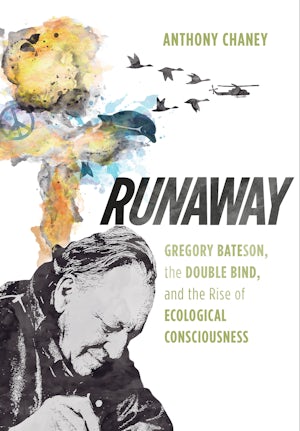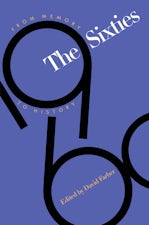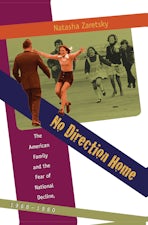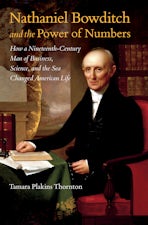Runaway
Gregory Bateson, the Double Bind, and the Rise of Ecological Consciousness
By Anthony Chaney
320 pp., 6.125 x 9.25, 17 halftones, notes, bibl., index
-
Paperback ISBN: 978-1-4696-6867-3
Published: November 2021 -
Hardcover ISBN: 978-1-4696-3173-8
Published: October 2017 -
E-book EPUB ISBN: 978-1-4696-3174-5
Published: August 2017 -
E-book PDF ISBN: 979-8-8908-5198-7
Published: August 2017
Buy this Book
- Paperback $27.95
- Hardcover $32.95
- E-Book $19.99
For Professors:
Free E-Exam Copies
Blending intellectual biography with an ambitious reappraisal of the 1960s, Anthony Chaney uses Bateson’s life and work to explore the idea that a postmodern ecological consciousness is the true legacy of the decade. Surrounded by voices calling for liberation of all kinds, Bateson spoke of limitation and dependence. But he also offered an affirming new picture of human beings and their place in the world—as ecologies knit together in a fabric of meaning that, said Bateson, “we might as well call Mind.”
About the Author
Anthony Chaney teaches history and writing at the University of North Texas at Dallas.
For more information about Anthony Chaney, visit
the
Author
Page.
Reviews
“Helps to provide a foundation for the ecological consciousness that emerged from the counterculture ideas in the mid-20th century.”--Library Journal
"A penetrating, informative, and insightful study that should be of special interest to a wide variety of scholars and scientists, including anthropologists, ecologists, environmentalists, and historians."--CHOICE
“Runaway should inspire further scholarship following Gregory Bateson and other difficult-to-place characters. Perhaps the history of science can help illuminate how our world arrived at the brink of runaway—and how it might find an alternative path forward.”--Isis Review
“A fascinating book.”--American Historical Review
“This is a fascinating and ambitious study dealing with the cultural history of a concept--Gregory Bateson’s double bind--as it emerged and wove its way through twentieth-century thought. In the process of narrating this complex intellectual and cultural history, Chaney draws upon not only Bateson’s archive but a host of literary and scientific sources, demonstrating the shared influences and overlap between bodies of thought that to my knowledge have never been explored so deeply or with as much skill.”—Frank Zelko, University of Vermont
“This is a remarkable piece of work by a gifted scholar. Indeed, it is something of an intellectual page-turner. Chaney has managed throughout to convert abstract ideas into riveting narrative episodes. The book opens up windows onto both Bateson’s psyche and the many worlds in which he moved, creatively reading a wide range of texts to reveal some of the deepest cultural and intellectual dynamics of the mid-twentieth century.”--Andrew Jewett, Harvard University




